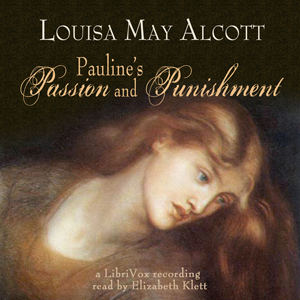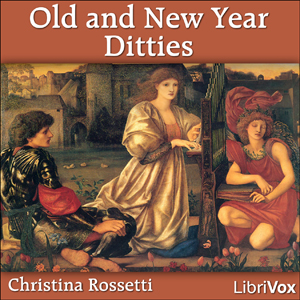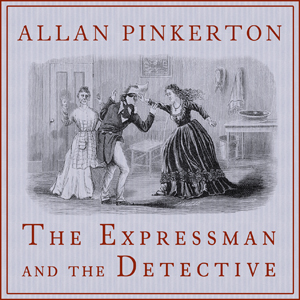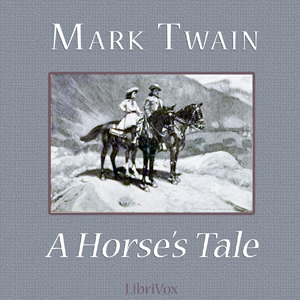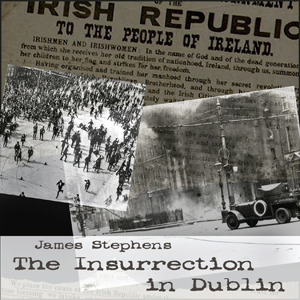- Arts
- RELATED
- SEE MORE
- classical
- general
- talk
- News
- Family
- Bürgerfunk
- pop
- Islam
- soul
- jazz
- Comedy
- humor
- wissenschaft
- opera
- baroque
- gesellschaft
- theater
- Local
- alternative
- electro
- rock
- rap
- lifestyle
- Music
- como
- RNE
- ballads
- greek
- Buddhism
- deportes
- christian
- Technology
- piano
- djs
- Dance
- dutch
- flamenco
- social
- hope
- christian rock
- academia
- afrique
- Business
- musique
- ελληνική-μουσική
- religion
- World radio
- Zarzuela
- travel
- World
- NFL
- media
- Art
- public
- Sports
- Gospel
- st.
- baptist
- Leisure
- Kids & Family
- musical
- club
- Culture
- Health & Fitness
- True Crime
- Fiction
- children
- Society & Culture
- TV & Film
- gold
- kunst
- música
- gay
- Natural
- a
- francais
- bach
- economics
- kultur
- evangelical
- tech
- Opinion
- Government
- gaming
- College
- technik
- History
- Jesus
- Health
- movies
- radio
- services
- Church
- podcast
- Education
- international
- Transportation
- Other
- kids
- podcasts
- philadelphia
- Noticias
- love
- sport
- Salud
- film
- and
- 4chan
- Disco
- Stories
- fashion
- Arts
- interviews
- hardstyle
- entertainment
- humour
- medieval
- literature
- alma
- Cultura
- video
- TV
- Science
- en
Pauline's Passion and Punishment by Louisa May Alcott (1832 - 1888)
Before she wrote Little Women and Little Men, Louisa, writing under the pseudonym A.M. Barnard, had this `blood and thunder' thriller (as she called them) published in 1863 by a weekly pulp magazine. This was during the period when Louisa worked a nurse during the American Civil war. The rigid and unfair roles of men and women of this period, their expectations and desires, plays a large in this story of betrayed love, anger, petulance, and ultimately, vengeance. The story is well written and plotted of course, being an Alcott story, so listeners can expect to enjoy a captivating and satisfying story read to them by one of the best and most highly polished readers around. (Summary by Phil Chenevert)
Listed in: Arts
Passing by Nella Larsen (1891 - 1964)
Nella Larsen, a novelist of the Harlem Renaissance, wrote two brilliant novels that interrogated issues of gender and race. In Passing, her second novel published in 1929, she examines the troubled friendship between two mixed-race women who can pass as white. One, Irene Redfield, marries a black man and lives in Harlem, while the other, Clare Kendry, marries a bigoted white man. Clare re-enters Irene's life after an absence of many years, and stirs up painful questions about identity. (Introduction by Elizabeth Klett)
Listed in: Arts
Orange Fairy Book, The by Andrew Lang (1844 - 1912)
Andrew Lang's Fairy Books or Andrew Lang's "Coloured" Fairy Books constitute a twelve-book series of fairy tale collections. Although Andrew Lang did not collect the stories himself from the oral tradition, the extent of his sources, who had collected them originally (with the notable exception of Madame d'Aulnoy), made them an immensely influential collection, especially as he used foreign-language sources, giving many of these tales their first appearance in English. As acknowledged in the prefaces, although Lang himself made most of the selections, his wife and other translators did a large portion of the translating and telling of the actual stories.
Many of the books were illustrated by Henry J. Ford. Lancelot Speed, and G. P. Jacomb Hood also contributed some illustrations. (Summary by Wikipedia)
Listed in: Arts
Thrice Welcome by Poor Robin
LibriVox volunteers bring you 17 recordings of Thrice Welcome from Poor Robin's Almanac. This was the Weekly Poetry project for December 11, 2011.
Poor Robin's Almanac first appeared in England in the 17th century. It ran until sometime in the 18th century.
It was originally a satirical publication, although over the years it became less humorous and more of a source for traditional homilies.
Poor Robin is a pseudonym whose original user is unknown. William Winstanley and Robert Herrick are both possible candidates. More works were published under this pseudonym in America in the 1800s.(Summary by Lucy Perry)
Listed in: Arts
Verschwörung des Fiesco zu Genua, Die by Friedrich Schiller (1759 - 1805)
Die Verschwörung des Fiesco zu Genua ist das zweite vollendete Drama Friedrich von Schillers. Er begann das Stück, das sich an die historische Verschwörung des Giovanni Luigi de Fieschi gegen Andrea Doria in Genua des Frühjahrs 1547 anlehnt, nach der Premiere seines Stücks Die Räuber 1782. (Zusammenfassung von Wikipedia)
Sektion 00 - Vorrede - Anzeige der Buehnenbearbeitung - Erinnerung an das Publikum: Text (1)
Sektionen 01 - 10 - Ein republikanisches Trauerspiel: Text (2)
Listed in: Arts
Lock and Key Library, The by Various
A collection of classic mystery and detective stories, collected and edited by Julian Hawthorne.
Note: the second chapter of Dickens’ The Haunted House is not included in this edition.
(Summary by Julie VW)
Listed in: Arts
All About Agatha Christie
All About Agatha is a podcast all about, well, Agatha. Agatha Christie, of course: the Queen of Crime, a real-life Dame of the British Empire, and author of sixty-six mystery novels that spanned the Twentieth Century, defining a genre. For five years, Catherine Brobeck and Kemper Donovan revisited these novels in publication order, ranking them according to pre-set criteria (plot, character, etc.). Tragically, Catherine Brobeck passed away at the end of 2021. Since then, Kemper has completed the podcast's ranking project, and now contents himself with celebrating the greatness of Christie by attempting to solve the ultimate mystery where she is concerned. Why Christie--and Christie alone--endures as powerfully as she does.
Listed in: Arts
Gloss Angeles
Co-hosts and longtime beauty journalists Kirbie Johnson and Sara Tan give their perspective on all things makeup, skincare, and wellness at the intersection of pop culture and entertainment. Experts in the field and friends IRL, they pull back the curtain on trends, treatments and popular products — all the things you're likely searching or watching on TikTok. (They'd know — they've spent 10 years creating and optimizing editorial content for mainstream digital beauty publishers.) Tuesday episodes reveal the most notable beauty headlines with informed takes while Friday episodes feature guests from experts in the industry to celebrity spokespeople, including Courteney Cox, Hailey Bieber, Halsey, Selena Gomez, Scarlett Johansson, Laverne Cox, Jonathan Van Ness, Barbie Ferreira, Brad Mondo, Emma Chamberlain, Dr. Jason Diamond, Charlotte Palermino and more.
Hosted on Acast. See acast.com/privacy for more information.
Listed in: Arts
Old and New Year Ditties by Christina Rossetti (1830 - 1894)
LibriVox volunteers bring you 3 different recordings of Old and New Year Ditties by Christina Rossetti.
Listed in: Arts
Na wzgórzu róż by Stefan Grabiński (1887 - 1936)
Drugi zbiór opowiadań przedwojennego pisarza specjalizującego się w opowieściach niesamowitych.
Tym razem czytelnik otrzymuje 6 historii, które udzielą zaskakujących odpowiedzi na takie pytania jak: co to za dziwny zapach unosi się w miejscu pełnym róż? czy miejsce może przesiąknąć szaleństwem? co oznacza niezwykła scena widziana w oknie pewnego domu? a także kilka innych. (Summary by Piotr Nater)
Listed in: Arts
Expressman and the Detective, The by Allan Pinkerton (1819 - 1884)
Allan Pinkerton (1819-1884), a Scotsman by birth and a barrel-maker by trade, settled in Chicago in its infancy and founded the Pinkertons, the world's first detective agency. Though events associated with the agency after his death have tarnished the name, Pinkerton himself was one of the original human rights advocates. He was a dear friend to John Brown, an advisor to Abraham Lincoln, and 80 years ahead of his time in hiring female detectives. He was also stubborn, irascible, and an egomaniac.
The Expressman and the Detective (1874) is Pinkerton's first attempt at putting his real-life experiences into novel form. Though many later works attributed to Pinkerton are understood to have been ghostwritten, this is the work of the man the London Times calls "a man at once deeply admirable and quite obnoxious." (Summary by Pete Williams)
Listed in: Arts
Audio Poem of the Day
Audio recordings of classic and contemporary poems read by poets and actors, delivered every day.
Listed in: Arts
Red Men And White by Owen Wister (1860 - 1938)
These eight stories are made from our Western Frontier as it was in a past as near as yesterday and almost as by-gone as the Revolution; so swiftly do we proceed. They belong to each other in a kinship of life and manners, and a little through the nearer tie of having here and there a character in common. Thus they resemble faintly the separate parts of a whole, and gain, perhaps, something of the invaluable weight of length; and they have been received by my closest friends with suspicion. ...When our national life, our own soil, is so rich in adventures to record, what need is there for one to call upon his invention save to draw, if he can, characters who shall fit these strange and dramatic scenes? One cannot improve upon such realities. If this fiction is at all faithful to the truth from which it springs, let the thanks be given to the patience and boundless hospitality of the Army friends and other friends across the Missouri who have housed my body and instructed my mind. And if the stories entertain the ignorant without grieving the judicious I am content. (Summary from Author's Preface)
Listed in: Arts
On Anything by Hilaire Belloc (1870 - 1953)
Long before I knew that the speech of men was misused by them and that they lied in the hearing of the gods perpetually, in those early days through which all men have passed, during which one believes what one is told, an old and crusty woman of great wealth, to whom I was describing what I intended to do with life (which in those days seemed to me of infinite duration), said to me, "You are building castles in Spain." I was too much in awe of this woman not on account of the wealth, but on account of the crust to go further into the matter, but it seemed to me a very foolish thing to say, for I had never been to Spain, and I had nothing wherewith to build a castle and indeed such a project had never passed through my head. -- Hilaire Belloc
Listed in: Arts
Nothing But the Truth by Frederic Stewart Isham (1866 - 1922)
A young man, finding himself unexpectedly impecunious, attempts to improve his fortunes by wagering that he can speak nothing but the absolute truth for three weeks. He soon learns, however, that telling only the unvarnished truth can have surprising consequences. This 1914 novel of love, mystery, and misunderstandings, with amusing characters and plot twists, was adapted as a Broadway play in 1916, followed by six motion pictures: in 1920 and 1929; in 1931 separately in Spanish, French and German; and in 1941 starring Bob Hope and Paulette Goddard. Frederic S. Isham was a writer of short stories, novels and plays. (Lee Smalley)
Listed in: Arts
Craft Beer & Brewing Magazine Podcast
Listen to the podcast for those who make and drink great beer. Every week we talk to professional brewers and industry experts about practical brewing advice, in-depth coverage of brewing trends that matter to you, and tips for getting the most out of your homebrew.
Listed in: Arts
Malcolm Sage, Detective by Herbert George Jenkins (1876 - 1923)
A collection of short stories that chronicles the first year of the Malcolm Sage Detective Bureau.
Sequel or companion story of John Dene of Toronto
Listed in: Arts
Romancero Viejo, El by Anonymous and Agustín Durán (1789 - 1862)
El Romancero español es un grupo de cortos poemas de origen medieval desgajados de los cantares de gesta castellanos a partir del siglo XIV y transmitidos de forma oral hasta el XIX, en que, merced al interés que el Romanticismo sintió por la literatura medieval, Agustín Durán (1789-1862) empezó a recogerlos en sus famosas Colecciones de romances antiguos o Romanceros, Valladolid, 1821, ampliado luego con el título más célebre de Romancero General. Ya en el siglo XX, Ramón Menéndez Pidal y su escuela emprendieron su compilación exhaustiva y empezaron a ordenarlos y estudiarlos. Muchos romances provienen especialmente del XV y se conservan gracias a coleccionistas contemporáneos de estas composiciones, que compraban en las ferias en forma de pliegos sueltos y que elaboraban con ellos los llamados cancioneros de romances. Este es el llamado Romancero viejo. (Introducción de Wikipedia)
Listed in: Arts
Best Way to Read a Book by Edgar A. Guest (1881 - 1959)
LibriVox volunteers bring you 20 recordings of Best Way to Read a Book by Edgar A. Guest. This was the Fortnightly Poetry project for September 12th, 2010.
Listed in: Arts
Mad Planet, The by Murray Leinster (1896 - 1975)
It is 30,000 years following dramatically changed climate conditions on earth which had let massive amounts of carbon dioxide belch from the interior of the planet into the atmosphere. Over the millenia this would have quite devastating effects on life as it had once been known. Much of the human and animal population would not survive the climate change, and indeed those few humans who did survive knew nothing of all which their predecessors had learned and built. Indeed, they knew not even of their existence. On the other hand insects and fungi would flourish over time.
And so those few remaining humans were unknowingly at the very beginning of the building of a tribal society, which at the time of the story of Burl simply meant food and survival. And so it was Burl who chose to travel beyond his small tribal community in an effort to hunt for something new and different to hopefully impress Saya, the young female of his tribe to whom he felt a peculiar attraction. The Mad Planet is Burl's adventure. (Introduction by Roger Melin)
Listed in: Arts
Frankenstein; or The Modern Prometheus (1818) by Mary Wollstonecraft Shelley (1797 - 1851)
Frankenstein; or, The Modern Prometheus is a novel written by the British author Mary Shelley. Shelley wrote the novel when she was 18 years old. The first edition was published anonymously in London in 1818, and this audiobook is read from that text. Shelley's name appeared on the revised third edition, published in 1831. The title of the novel refers to the scientist, Victor Frankenstein, who learns how to create life and creates a being in the likeness of man, but larger than average and more powerful. In modern popular culture, people have tended to refer to the Creature as "Frankenstein" (especially in films since 1931), despite this being the name of the scientist, and the creature being unnamed in the book itself. Frankenstein is a novel infused with elements of the Gothic novel and the Romantic movement. It was also a warning against the "over-reaching" of modern man and the Industrial Revolution, alluded to in the novel's subtitle, The Modern Prometheus. The story has had an influence across literature and popular culture and spawned a complete genre of horror stories and films. It is arguably considered the first fully-realised science fiction novel and raises many issues still relevant to today's society. (Summary from Wikipedia.org, adapted by Cori Samuel.)
Listed in: Arts
Leonce und Lena by Georg Büchner (1813 - 1837)
Das 1895 uraufgeführte Lustspiel Leonce und Lena von Georg Büchner setzt sich an Hand der Liebesgeschichte der Königskinder Leonce und Lena sartirisch mit Sinn und Rolle des Einzelnen im gesellschaftlichen Gefüge auseinander.
Sowohl dem gelangweilten, sinnsuchenden Prinz Leonce, als auch der depressiv, erduldenden Prinzessin Lena, ist die zwischen ihnen arrangierte Hochzeit unerträglich.
Unabhängig von einander fliehen sie nach Italien und stellen bei einem zufälligen Treffen, ohne Kenntnis der jeweils anderen Identität, fest, dass sie füreinander bestimmt sind.
Als Automaten verkleidet lassen sie sich schlieβlich an Stelle des vermeintlich abwesenden Brautpaars bei Leonce und Lenas Hochzeitsfeierlichkeiten trauen und erkennen erst hinterher die schicksalhafte Fügung.
(Zusammenfassung von Franziska)
Die Rollen wurden gelesen von:
König Peter vom Reiche Popo – Karsten Roeseler
Prinz Leonce vom Reiche Popo – Carsten Thiel
Prinzessin Lena vom Reiche Pipi – Franziska Glaβmeier
Valerio – Lars Kasper
Die Gouvernante – Kirstin Strokorb
Der Hofmeister – Jakob Bierwagen
Der Ceremonienmeister – Sabrina Kombrink
Der Präsident des Staatsraths – Jakob Bierwagen
Der Hofprediger – Sabrina Kombrink
Der Landrath – Thorsten Trieschmann
Der Schulmeister – Andre Schlipp
Rosetta – Sabrina Kombrink
Erster Kammerdiener – Thorsten Trieschmann
Zweiter Kammerdiener – Andre Schlipp
Erster Bedienter – Anne Tomczak
Zweiter Bedienter – Christiane Strokorb
Regieanweisungen – Daniel Rettstadt
Listed in: Arts
Horse's Tale, A by Mark Twain (1835 - 1910)
Soldier Boy is the top steed at Fort Paxton. He is Buffalo Bill’s favorite horse and has led a life of glory and honor. One day General Alison’s orphaned niece arrives and proceeds to charm every man, woman, and beast for miles around including Soldier Boy. Buffalo Bill takes her under his wing and ultimately “lends” her Soldier Boy so that they may seek adventure together. And so they do. – “A Horse’s Tale” was first published in the August and September, 1906 issues of Harper’s Monthly magazine. (Summary by Gregg Margarite)
Listed in: Arts
Folk Tales Every Child Should Know by Hamilton Wright Mabie (1846 - 1916)
We have always loved stories. people have always entertained each other by telling tales around the campfire; traveling storytellers were huge crowd-pullers. Many of these stories were passed down through the generations, largely unchanged. "The stories made by the people, and told before evening fires, or in public places and at the gates of inns in the Orient, belong to the ages when books were few and knowledge limited, or to people whose fancy was not hampered by familiarity with or care for facts; they are the creations, as they were the amusement, of men and women who were children in knowledge, but were thinking deeply and often wisely of what life meant to them, and were eager to know and hear more about themselves, their fellows, and the world. In the earlier folk-stories one finds a childlike simplicity and readiness to believe in the marvellous; and these qualities are found also in the French peasant's version of the career of Napoleon. " (from the Introduction). - Summary by Lynne Thompson
Listed in: Arts
Red Masquerade by Louis Joseph Vance (1879 - 1933)
In the beginning of his career, Michael Lanyard alias The Lone Wolf, the most talented thief of his day, made the acquaintance of the beautiful Princess Sofia, but he also made an enemy of her husband, Prince Victor. Years later, Lanyard's daughter gets into the crossfire...
Red Masquerade is the third book in the Lone Wolf Series. (Summary by Carolin)
Listed in: Arts
Peep Behind the Scenes, A by Mrs. O. F. Walton (1849 - 1939)
Rosalie is the daughter of a traveling theater master and is envied by many young girls as she appears to live a life full of glamour, glitz, and glory. But beneath the happy smiling face is a hurting heart, a deep sorrow for her dying mother, and a wretched life. Follow Rosalie as she learns of the Good Shepherd who loves and cares for her, and begins to trust Him for daily strength. (Summary by Abigail Rasmussen)
Listed in: Arts
Mashi and Other Stories by Rabindranath Tagore (1861 - 1941)
A 1918 collection of short stories, by the popular Bengali writer. (Summary by BellonaTimes)
Listed in: Arts
Make Mine Homogenized by Rick Raphael (1919 - 1994)
Widowed cattle rancher Hetty Thompson had done all right for herself since Big Jim’s death. She had Barney, a loyal if dim-witted ranch hand, and Johnny her assistant manager whom she rescued from a drunken father years before. When the government carves out a huge piece of Frenchman’s Flat for an atomic testing ground Hetty and her neighbors object, but the military fences in the range anyway. It wasn’t so bad for a while. Then Hetty’s chickens began laying golden eggs, and her prize Guernsey produced explosive milk. Nevada ranch folk are tough but are they ready for mutant livestock? (Summary by Gregg Margarite)
Listed in: Arts
History of England, from the Accession of James II - (Volume 5, Chapter 24), The by Thomas Babington
This is volume 5 chapter 24 of a series of books written by the Baron Macaulay (1800-1859). Volume 5 was published after his death.
Chapter 24 begins with the change in parliament with the 1698 elections. The death of the Electoral Prince of Bavaria obviates the first partition treaty and William and Lewis must try again. A good telling to the Darien bubble.
Listed in: Arts
Vitai Lampada by Sir Henry Newbolt (1862 - 1938)
LibriVox volunteers bring you 10 recordings of Vitai Lampada by Sir Henry Newbolt.
'Vitai lampada' is a quotation from De Rerum Natura (On the Nature of the Universe) by Lucretius and literally means 'The torch of life.'
This was the Weekly Poetry project for May 17th, 2010.
Listed in: Arts
Toys of Peace, The by Saki (1870 - 1916)
This is the fifth collection of short stories by Saki (H.H. Munro), and was published posthumously in 1923. Even so, many of the stories are quite up to the standard of those collected earlier. (Summary by Graham Redman)
Listed in: Arts
Last Day of a Condemned, The by Victor Hugo (1802 - 1885)
A man who has been condemned to death writes down his cogitations, feelings and fears while he is waiting for his execution. He does not betray his name to the reader or what he has done. He describes his life in prison, everything from what his cell looks like to the personality of the prison priest. (Introduction by Wikipedia)
Part of Section 2 read by Nadine Eckert-Boulet
This project was proof listened by lh, Barry Eads, and Chieko.
Listed in: Arts
Insurrection in Dublin, The by James Stephens (1882 - 1950)
The Easter Rising was a rebellion staged in Ireland in Easter Week, 1916. The Rising was an attempt by militant Irish republicans to win independence from Britain by force of arms. This account was written by Irish novelist James Stephens, who lived and worked in Dublin at the time. (Summary from Wikipedia and iremonger)
Listed in: Arts
Pippa Passes by Robert Browning (1812 - 1889)
Pippa Passes was a dramatic piece, as much play as poetry, by Robert Browning published in 1841 as the first volume of his Bells and Pomegranates series.
The author described the work as the first of a series of dramatic pieces. His original idea was of a young, innocent girl, moving unblemished through the crime-ridden neighbourhoods of Asolo. The work caused outrage when it was first published, due to the matter-of-fact portrayals of many of the area's more disreputable characters – notably the adulterous Ottima – and for its frankness on sexual matters. Perhaps the most famous passage is below:
The year's at the spring,
And day's at the morn;
Morning's at seven;
The hill-side's dew-pearled;
The lark's on the wing;
The snail's on the thorn;
God's in his Heaven -
All's right with the world! (Summary by Wikipedia)
Characters:
Pippa — Philippa
Narrator/Stage Directions — David Lawrence
1st 3rd & 5th Student — Lars Rolander
3rd & 4th Girl — vanrose
Gottlieb, 1st and 3rd Police — Doug
Jules, 2nd Police & Monsignor — heyfd
Luigi — mb
Luigi’s Mother — Silence
Ottima, 2nd Girl — TriciaG
Phene, 1st Girl — Neeru Iyer
Sebald, Schramm, Bluphocks, Intendant, 2nd, 4th & 6th Student — Barry Eads
All tunes used are original and placed in the public domain by the readers.
Listed in: Arts
Gunsmoke - OTRWesterns.com
Gunsmoke was a long-running old-time radio and television Western drama program set in Dodge City, Kansas during the settlement of the American West. The radio show first aired on April 26, 1952 and ran until June 18, 1961 on the CBS radio network. The series starred William Conrad as Marshal Matt Dillon, Howard McNear as Doc Charles Adams, Georgia Ellis as Kitty Russell, and Parley Baer as Deputy Chester Proudfoot. Doc’s first name and Chester’s last name were changed for the television program. Gunsmoke was notable for its critically acclaimed cast and writing and is commonly regarded as one of the finest old time radio shows. Some listeners have argued that the radio version of Gunsmoke was far more realistic than the television program. Episodes were aimed at adults and featured some of the most explicit content of the day: there were violent crimes and scalping's, massacres and opium addicts. Miss Kitty’s occupation as a prostitute was made far more obvious on the radio version than on television. Many episodes ended on a down-note, and villains often got away with their crimes.
Listed in: Arts
Make Mine Homogenized (Version 2) by Rick Raphael (1919 - 1994)
Just sixty miles from ground zero in Nevada there lies Circle T Ranch run by Hetty Thompson the owner, Barney Hatfield the farmhand, and Johnny Culpepper the assistant manager. It was just another ordinary ranch until, that is, the two cows and the rooster hit the nuclear jackpot.
(Introduction by Jeanie1914)
Listed in: Arts
Fiddler of Dooney, The by William Butler Yeats (1865 - 1939)
LibriVox volunteers bring you 17 recordings of The Fiddler of Dooney by William Butler Yeats. This was the Weekly Poetry project for December 4th 2011
William Butler Yeats was a notable Irish poet and playwright. He was awarded the Nobel Prize for Literature in 1923.
The Fiddler of Dooney first appeared in Yeats' 1899 book of poetry 'The Wind Among the Reeds`. (Summary by Lucy Perry)
Listed in: Arts
Maria, or the Wrongs of Woman by Mary Wollstonecraft (1759 - 1797)
Maria: or, The Wrongs of Woman is Mary Wollstonecraft's unfinished novelistic sequel to her revolutionary political treatise A Vindication of the Rights of Woman. It was published posthumously in 1798 by her husband, William Godwin. Maria revolves around the story of a woman imprisoned in an insane asylum by her husband, and focuses on the societal rather than the individual "wrongs of woman". Publicised at the same time as Wollstonecraft's memoirs, both were considered scandalous. Not until the 20th century was the novel considered an important historical and feminist work. (Summary by Wikipedia)
Listed in: Arts
Don Quijote 2 by Miguel de Cervantes Saavedra (1547 - 1616)
Don Quijote de la Mancha (ortografía y título original —1605—, El ingenioso hidalgo Don Quixote de la Mancha) es una de las obras cumbre de la literatura española y la literatura universal, el libro más traducido después de la Biblia, escrito por Miguel de Cervantes.
La novela consta de dos partes: la primera, El ingenioso hidalgo don Quijote de la Mancha, fue publicada en 1605; la segunda, El ingenioso caballero don Quijote de la Mancha, en 1615.
La primera parte se imprimió en Madrid, en casa de Juan de la Cuesta, a fines de 1604. Salió a la venta en enero de 1605 con numerosas erratas, a causa de la celeridad que imponía el contrato de edición. Esta edición se reimprimió en el mismo año y en el mismo taller, de forma que hay en realidad dos ediciones de 1605 ligeramente distintas. Se sospecha, sin embargo, que existió una novela más corta, que sería una de sus futuras Novelas ejemplares. (Resumen de Wikipedia)
Listed in: Arts
Insurgent Mexico by John Reed (1887 - 1920)
In the autumn of 1913 John Reed was sent to Mexico by the Metropolitan Magazine to report the Mexican Revolution. He shared the perils of Pancho Villa's army for four months, present with Villa's Constitutional Army when it defeated Federal forces at Torreón, opening the way for its advance on Mexico City. Reed's time with the Villistas resulted in a series of outstanding magazine articles that brought Jack a national reputation as a war correspondent. Reed deeply sympathized with the plight of the peons and vehemently opposed American intervention, which came shortly after he left. Jack adored Villa, while Carranza left him cold. Jack's Mexican reports were later republished in book form as Insurgent Mexico, which appeared in 1914. (Summary from Wikipedia)
Listed in: Arts
Grüne Heinrich (zweite Fassung), Der by Gottfried Keller (1819 - 1890)
Der grüne Heinrich von Gottfried Keller ist ein teilweise autobiographischer Roman, der neben Goethes Wilhelm Meister und Stifters Nachsommer als einer der bedeutendsten Bildungsromane der deutschen Literatur des 19. Jahrhunderts gilt. Dies ist die "zweite Fassung" des Romans, eine Überarbeitung Kellers aus dem Jahre 1870. (Zusammenfassung von Wikipedia)
Listed in: Arts
One Basket by Edna Ferber (1885 - 1968)
This sparkling collection of 7 short stories by Ferber includes some that are considered her all time best like The Woman Who Tried To be Good and The Maternal Feminine. Writing for and about women, Edna Ferber touches the very heart and soul of what it means to be human; to make good choices and bad; to be weak and strong. This was a very popular book when published in 1913 (Summary by phil chenevert)
Listed in: Arts
Little Mud-Sparrows, The by Elizabeth Stuart Phelps (1844 - 1911)
LibriVox volunteers bring you 13 recordings of The Little Mud-Sparrows by Elizabeth Stuart Phelps. This was the Fortnightly Poetry project for December, 4, 2011.
This poem is taken from CHRISTMAS IN LEGEND AND STORY; A Book for Boys and Girls, complied by Elva S. Smith, Carnegie Library Pittsburgh and Alice I. Hazeltine, Public Library St. Louis 1915. (from the book's frontispiece)
Listed in: Arts
Song of the Western Men, The by Robert Stephen Hawker (1805 - 1875)
LibriVox volunteers bring you 8 recordings of The Song of the Western Men by Robert Stephen Hawker.This was the Weekly Poetry project for August 29th, 2010.
This poem is also known by the title of "Trelawny". Hawker wrote the song in 1824, telling of events that took place in 1688.
Listed in: Arts
Patchwork Girl of Oz, The by L. Frank Baum (1856 - 1919)
An unlucky Munchkin boy named Ojo must travel around Oz gathering the ingredients for an antidote to the Liquid of Petrifaction which has turned his beloved uncle Unc Nunkie and the wife of the Liquid's creator into marble statues. Ojo is joined by the patchwork girl Scraps, Dorothy, Dr. Pipt's Glass Cat, the Woozy, the Shaggy Man, the Scarecrow and the Tin Woodman. They eventually visit the Emerald City to ask for help from the Wizard of Oz. (Summary by Daniel Anaya)
Listed in: Arts
Last Chronicle of Barset, The by Anthony Trollope (1815 - 1882)
Both Trollope and some of his later critics have considered The Last Chronicle to be his greatest novel. Many of its characters are familiar from the earlier Barsetshire novels, including the Rev. Josiah Crawley, the impoverished curate of Hogglestock, whose alleged theft of £20, together with the efforts of many to clear up the mystery, lie here at the center. Central also is the trying courtship between Major Grantly and Grace Crawley, the clergyman's daughter, over the objections of the Major's parents, Archdeacon Grantly and his wife; and the adventures of Johnny Eames, a protagonist of the Small House at Allington. Finally, it is in The Last Chronicle that Bishop Proudie of Barsetshire and his domineering wife, introduced in Barchester Towers, achieve their fullest and most dramatic portrayal.(Summary by Nicholas Clifford)
Novels in the series are :
1-The Warden
1-The Warden (version 2)
2-Barchester Towers
3-Doctor Thorne
4-Framley Parsonage
5-The Small House at Allington
6-The Last Chronicle of Barset
Listed in: Arts
Grüne Gesicht, Das by Gustav Meyrink (1868 - 1932)
Der Roman dreht sich um ein etwas unfreiwilliges Liebespaar, das in Kontakt mit immer abstruser werdenden Gestalten, Diebstählen, Morden ... mehr und mehr in ein Reich der Mystik und Fantasie abgedrängt und schliesslich getrennt zu werden droht. Dabei tauchen immer wieder Visionen des Ewigen Juden auf, den Meyrink unter dem Namen Cidher Grün auch in anderen Werken thematisiert.
Als schliesslich das Unfassbare geschieht, bleibt dem Helden Hauberrisser am Ende nur, zu versuchen, den Tod zu überwinden, um zu einem inneren und äußeren unendlichen Leben zu finden, die geistige Blindheit abzuschütteln und die Erleuchtung zu erlangen, - während um ihn herum die Welt in einer Apokalypse unterzugehen droht...
(Zusammenfassung von crowwings)
Listed in: Arts
Granny's Wonderful Chair (Dramatic Reading) by Frances Browne (1816 - 1879)
Her most famous work, Granny's Wonderful Chair, was published in 1856 and it is still in print to this day. It is a richly imaginative book of fairy stories and has been translated into many languages. This work, read as a child by Frances Hodgson Burnett, inspired the writings of Little Saint Elizabeth and Other Stories (Summary by Wikipedia and Linette Geisel)
Cast:
Narrator: Linette Giesel
Storytelling Chair: Phil Chenevert
Female 1: Beth Thomas
Female 2: Amy Gramour
Female 3: rashada
Female 4: ChyAnne Donnell
Female 5: Joyce Couch
Female 6: Kalynda
Male 1: Glenn Previtera
Male 2: Algy Pug
Male 3: bish
Male 4: Matthew Reece
Male 5: David Lawrence
Male 6: Ernst Pattynama
Male 7: Steve Belleguelle
Male 8: Ken Felt
Male 9: Ken Felt
Project Editor: Phil Chenevert
Listed in: Arts
